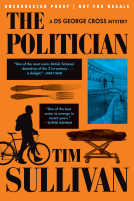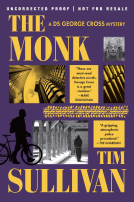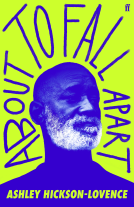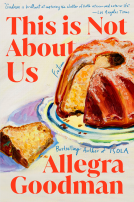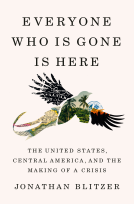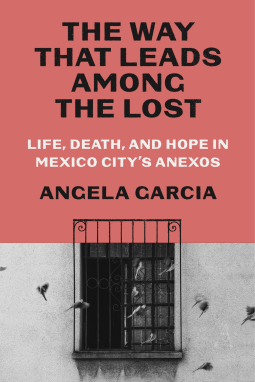
The Way That Leads Among the Lost
Life, Death, and Hope in Mexico City's Anexos
by Angela Garcia
This title was previously available on NetGalley and is now archived.
Send NetGalley books directly to your Kindle or Kindle app
1
To read on a Kindle or Kindle app, please add kindle@netgalley.com as an approved email address to receive files in your Amazon account. Click here for step-by-step instructions.
2
Also find your Kindle email address within your Amazon account, and enter it here.
Pub Date Apr 30 2024 | Archive Date May 30 2024
Description
Based on over a decade of research, a powerful, moving work of narrative nonfiction that illuminates the little-known world of the anexos of Mexico City, the informal addiction treatment centers where mothers send their children to escape the violence of the drug war.
The Way That Leads Among the Lost reveals a hidden place where care and violence are impossible to separate: the anexos of Mexico City. The prizewinning anthropologist Angela Garcia takes us deep into the world of these small rooms, informal treatment centers for alcoholism, addiction, and mental illness, spread across Mexico City’s tenements and reaching into the United States. Run and inhabited by Mexico’s most marginalized populations, they are controversial for their illegality and their use of coercion. Yet for many Mexican families desperate to keep their loved ones safe, these rooms offer something of a refuge from what lies beyond them—the intensifying violence surrounding the drug war.
This is the first book ever written on the anexos. Garcia, who spent a decade conducting anthropological fieldwork in Mexico City, draws readers into their many dimensions, casting light on the mothers and their children who are entangled in this hidden world. Following the stories of its denizens, she asks what these places are, why they exist, and what they reflect about Mexico and the wider world. With extraordinary empathy and a sharp eye for detail, Garcia attends to the lives that the anexos both sustain and erode, wrestling with the question of why mothers turn to them as a site of refuge even as they reproduce violence. Woven into these portraits is Garcia’s own powerful story of family, childhood, homelessness, and drugs—a blend of ethnography and memoir converging on a set of fundamental questions about the many forms and meanings that violence, love, care, family, and hope may take.
Infused with profound ethnographic richness and moral urgency, The Way That Leads Among the Lost is a stunning work of narrative nonfiction, a book that will leave a deep mark on readers.
A Note From the Publisher
Advance Praise
★ "A stunning portrait . . . Spending days embedded inside the crowded single rooms that comprise most anexos, [Garcia] transcribes residents’ evocative life stories. Startlingly, her journey eventually brings her to the U.S. . . . Garcia’s narrative is fueled by an insatiable curiosity about the unique ethos of anexos, which sometimes seem to serve as spiritual retreats from a world gone haywire. It’s a luminous, immersive account of an unseen social safety net." —Publishers Weekly (starred review)
★ “[An] astute and harrowing chronicle . . . [Garcia’s] approach is studied and intimate as she mixes memoir and academic rigor to enter the traumas of lives uprooted and too often shattered by addiction . . . Given ongoing arguments over immigration, drug use, and legalization, Garcia’s outstanding book adds compassion and insight to this important social and political discussion.” —Booklist (starred review)
"This probing book raises ethical questions about the use of violence as a rehabilitative tool. It also illuminates the role of the U.S. in perpetuating human suffering through military aid, illegally trafficked guns, and its insatiable hunger for drugs while immersing readers in Garcia’s own struggle to overcome the demons of a painful past. An engaging and insightful book." —Kirkus Reviews
“Angela Garcia is a card-carrying anthropologist and ethnographer yet her writing reads like the best of literary nonfiction. The world she describes is close at hand and yet most of us would be fearful to get anywhere near, let alone embed ourselves within it. An utterly fascinating story.” —Abraham Verghese, author of The Covenant of Water
“A true book can be many things, but it’s always a book no one else can write. This is a true book about love, the politics of abandonment, and addiction. Angela Garcia takes us through the wreckage of the war on drugs, revealing what this manufactured brutality now creates. That she maps the latticework of care of the anexos so carefully, as patiently as she comes into understanding her own quest, is not only one of the book’s many achievements, but also an act of grace.” —Adrian Nicole LeBlanc, author of Random Family
“The Way That Leads Among the Lost is an emotionally vivid and beautiful book about pain, violence and love, and the impossible choices that face parents in desperate settings. Like the best anthropology, it opens a window into a hidden world and makes it feel alive.” —Tanya Luhrmann, professor of anthropology at Stanford University
“In this remarkable ethnography, Angela Garcia illuminates the hidden world of Mexico's 'anexos,' informal treatment centers where teenagers from poor families are often sent against their will by parents who are unable to care for them. Condemned as torture centers by human rights groups, Garcia shows that anexos are often the only place to which mothers can turn to protect their children from the violence of Mexico's drug wars. Her gracefully written, sharply observed study is a model of empathy that movingly captures the dignity and humanity of 'anexados' and their families.” —Eyal Press, author of Dirty Work
“An extraordinary exploration, personal and anthropological, of the impossibly murky boundaries between protecting children, walling them off from the dangers of the world, and abandoning them. Garcia is so gifted that she can turn a history of a small dim room in Mexico City into an examination of both her life and a generation.” —Rachel Aviv, author of Strangers to Ourselves
“Angela Garcia’s participant ethnography The Way That Leads Among the Lost: Life, Death, and Hope in Mexico City’s Anexos is an exploration of and testament to the lengths to which women, mostly mothers, go to try to keep themselves and those they love safe from violence. As she situates the anexos (spaces of last resort that are part jail, part lay clinic) as complex responses to Mexican and US state violence, the 'war on drugs,' and governments' failures to ameliorate tremendous suffering, Garcia’s braided narratives handles the stories of these women and the anexados with care. Attending to the conditions that produce those proliferating anexos—The Way That Leads Among the Lost is a profound grappling with the ethics, forms, and practices of care in the midst of unrelenting violence.” —Christina Sharpe, author of Ordinary Notes
“In The Way That Leads Among the Lost, Angela Garcia dives deep into the makeshift rehabilitation centers around Mexico City that embody a paradox: Often used to shield vulnerable family members from the violence of the country’s failed drug war, the spaces employ brutal and often abusive tactics on their residents. As Garcia undertakes an extensive, open-hearted study of what some of Mexico’s most marginalized people do to try to heal after they’ve been abandoned by the state, she looks inward at her own personal history of abandonment and loss. What results is an excruciatingly intimate look at pain and catharsis. This book blew me away.” —Roxanna Asgarian, author of We Were Once a Family
“The Way That Leads Among the Lost is a searing ethnography of the violence experienced by poor mothers in Mexico City’s war on drugs as they struggle to protect their children by committing them to lay treatment centers that use violence as care. It is also a searching autobiography of Angela Garcia’s own existential struggle with the violence of poverty, drugs, broken family, and abandonment. The two stories merge into what is more than a tragedy of our time, but a personal victory for Garcia’s caregiving to rebuild her world. Powerful, compelling, deeply affecting: a courageous account of what has become all too ordinary social suffering and the extraordinary work in the ambiguous grey zone of life to repair broken worlds.” —Arthur Kleinman, author of The Soul of Care
Available Editions
| EDITION | Other Format |
| ISBN | 9780374605780 |
| PRICE | $29.00 (USD) |
| PAGES | 272 |
Available on NetGalley
Average rating from 12 members
Featured Reviews
I wasn't too sure about this when I picked it - was I really up for reading an entire book about informal addiction boot camps in Mexico? Well, I'm glad I took the chance, as this is much more than that. García (no relation), an anthropologist, uses anexos as a window into the life of the poor in Mexico, the drug wars that have destroyed the state, the misery that was unleashed by NAFTA, the plague of femicides that has horrified the world, and more. She also reveals a lot of herself, her difficult childhood, the end of her marriage, and her love and concern for her daughters. I am hoping this reaches a wide audience, it really deserves it.


